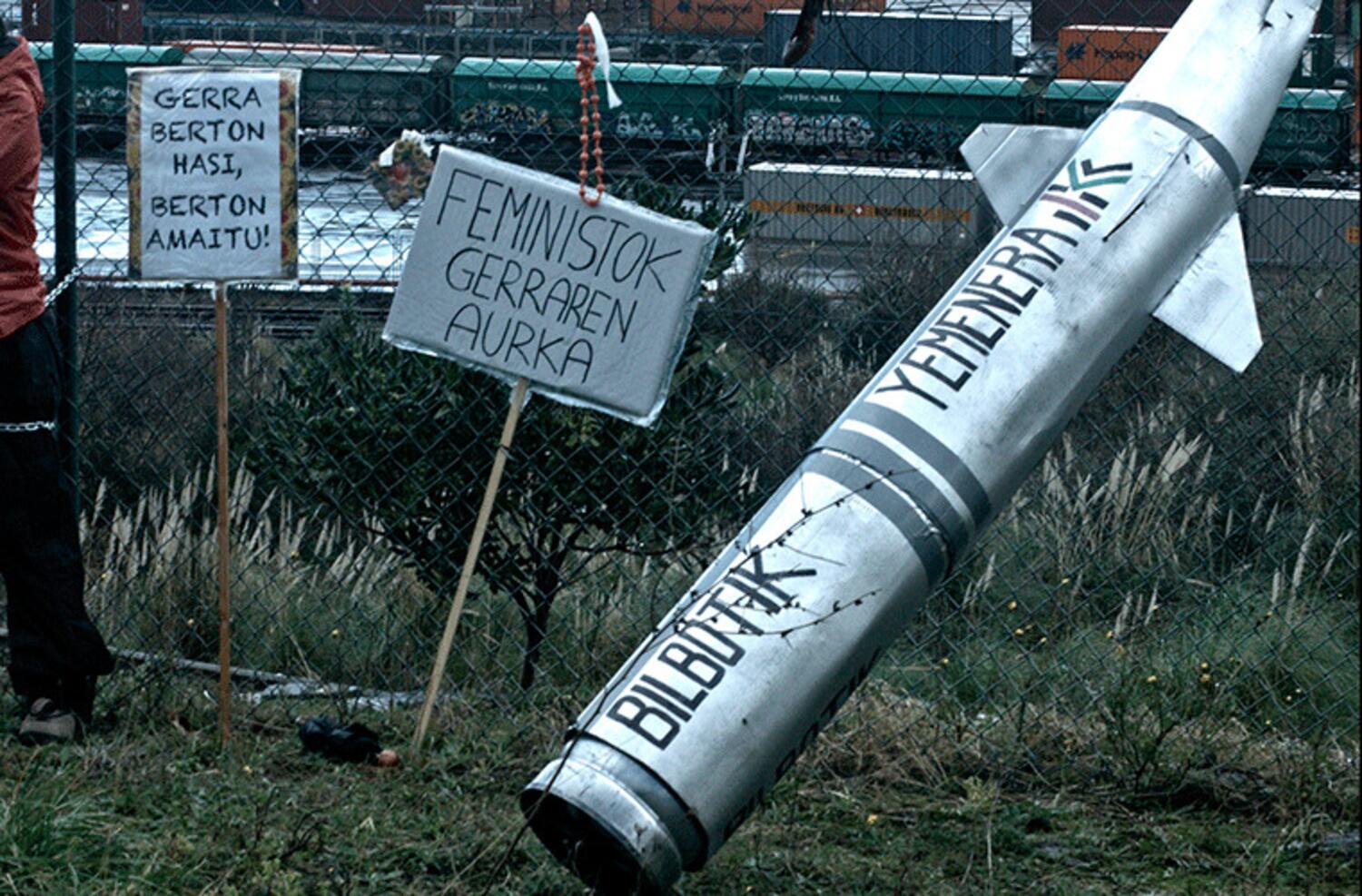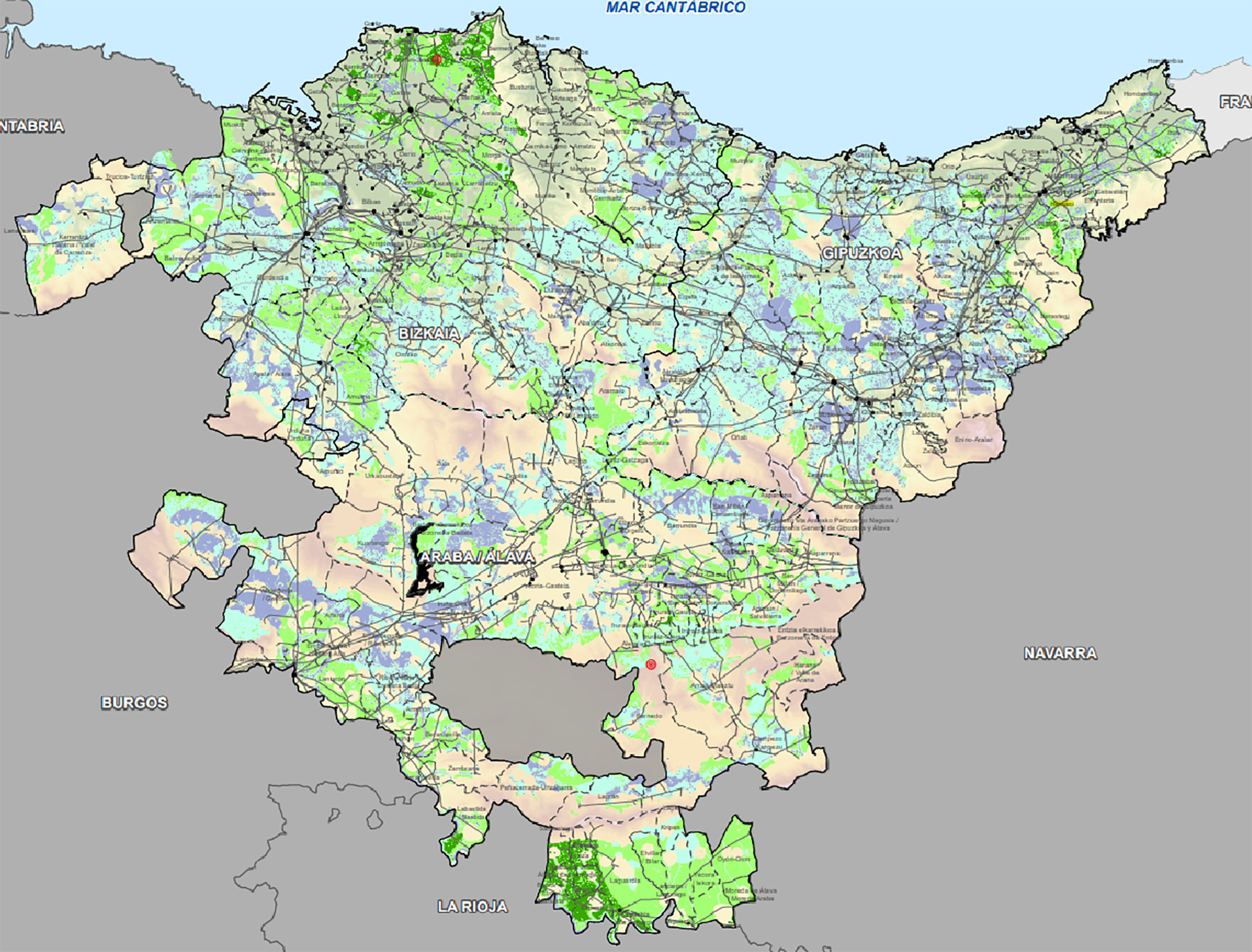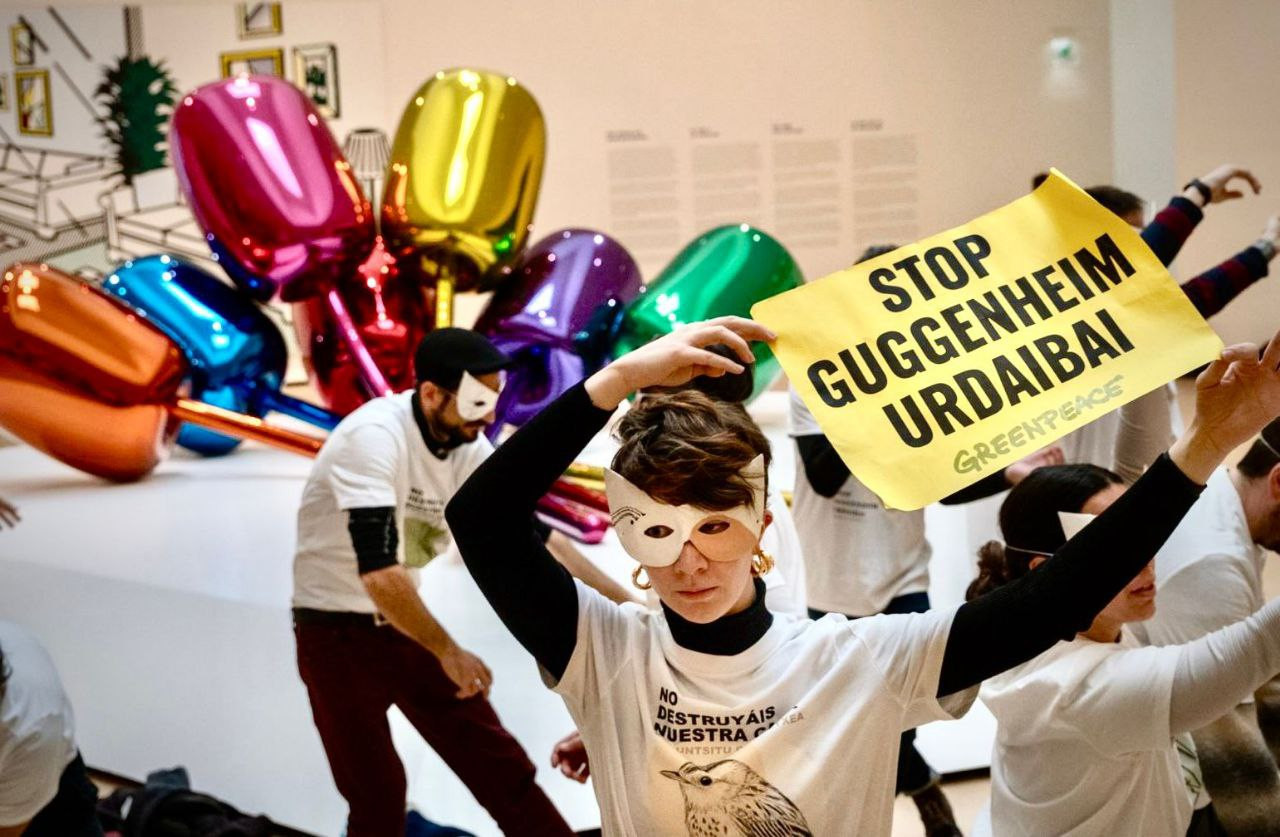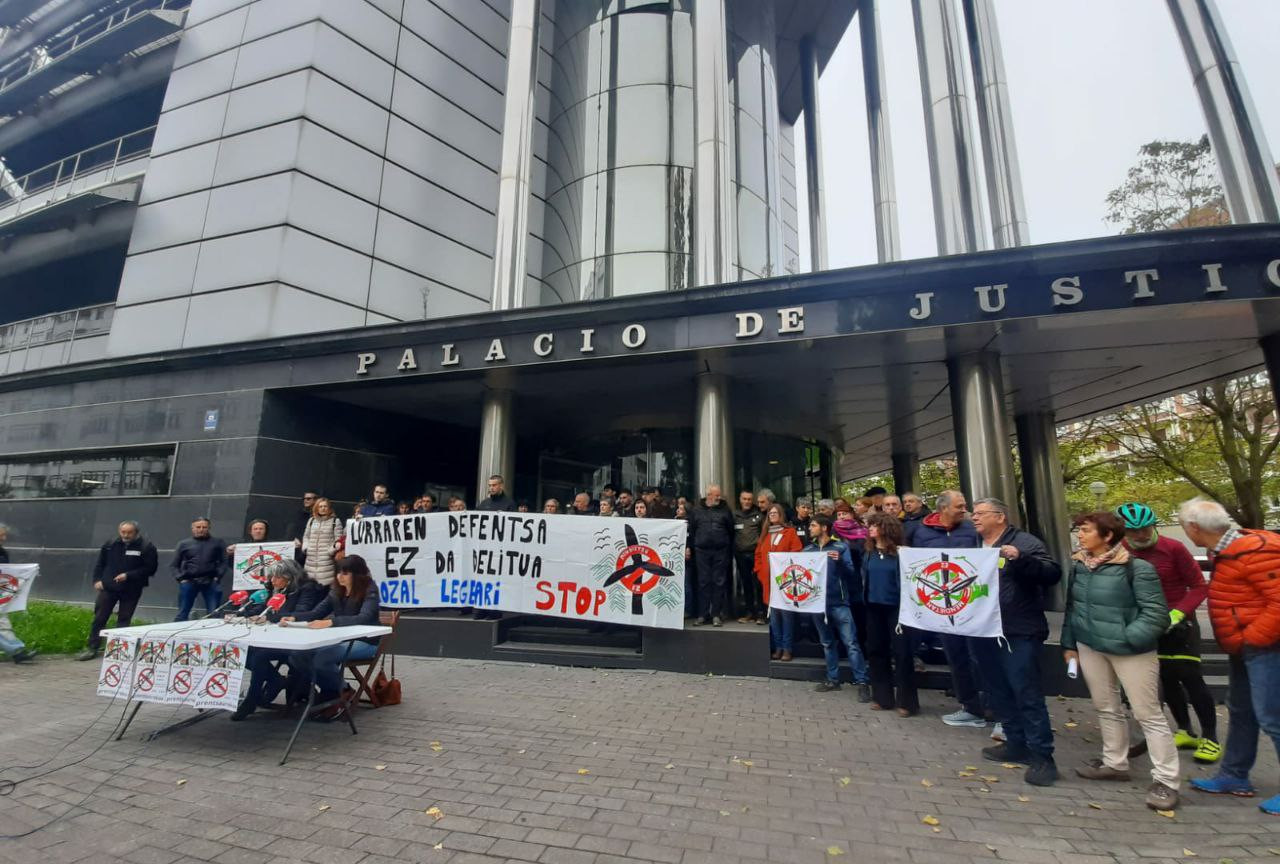"Our relationship with nature is a reflection of social relations"
- Specialist in social ecology, has published the book The Next Revolution by his father, Murray Bookchin, pioneer of social ecology in the Basque Country. He has also worked as a journalist, being the press officer for three years by American politician Bernie Sanders. He participated in the II Conference on Social Ecology and Libertarian Municipalities held in Bilbao last October.

Murray Bookchin, your father, spoke in the 1980s about the institutional and environmental crisis. How has this crisis evolved?
Worsening. Neoliberalism has spread to everything, and we also experience the crisis of democracy, which is disappearing from its components. This loss of trust is due to the fact that these institutions do not meet people's needs. We have to readjust them, but it is not enough to vote for progressive politicians: we have to transfer the power of state institutions locally. Communities must control their decisions through face-to-face meetings and conversations. On the other hand, the environment is suffering insofar as we treat it as something we can exploit. One of the conclusions that my father drew was that we cannot solve the environmental crisis without solving the crisis of social relations, without overcoming the relationships of domination and hierarchy.
How do these two crises relate?
The environmental crisis is due to the seminal ethics of capitalism, which must continue to exploit, produce and consume resources. States exist to sustain capitalism, and states ensure that people have little power to express their ideas. The polls are insurmountable obstacles to preventing people from being empowered.
You say that nature is an example to humans.
My father said that the ecological model would be a proper social model. Ecological systems are more stable when they have diversity, when they are formed by relationships of complementarity. This model is also suitable for human systems, it works better. Unity in diversity: when the different qualities and needs of people begin to act together, a balance is produced.
They propose bringing those principles into society. How?
We have to develop transparent and non-hierarchical policies, and those principles also come from ecology. The social paradigm cannot be economic. What is the main human good? It is certainly not exploitation or excessive development. We need a society that promotes freedom and creativity. For example, people have had the lion as the principal of nature, it's representing the hierarchy of men, it's naturalizing hierarchy and there's no hierarchy in nature. Everything is interconnected in healthy ecosystems, and in society we must also abandon hierarchy and domains.
What relationship should human beings have with nature?
We need to completely reorganize society to transform our relationship with nature. The kind of relationship we have with nature today is nothing more than a reflection of the relationships of our society. When my father claimed ecology as a political basis, he was not just protesting against the felling or contamination of a forest; our relationship with the environment is traversed by capitalism from one side to the other. He called for equality in treatment, for equality in dealing with the environment.
What kind of economy or technology do you propose?
I don't think technology has a good or bad value in itself, man can use it in a good or otherwise bad way. What will we use technology, nature and human beings for to exploit them or to improve our lives? On the other hand, a moral economy based on the ecological use of land and energy is essential. But in order to achieve this economy, it is necessary to have a moral society, and to do so it is essential that people actively participate in the decisions of their community. This type of economy is essential in the libertarian municipal or communal construction.
Do you propose a concrete model of social organization?
We have to understand that power is always going to be, but the key is who is going to have that power. Will the power be in the offices of the high commissioners, even if they say they are progressive? The only answer is to put power back on the local level. There is a third choice between the Soviet model that assumes all power and the anarchist model that renounces all power. That is what is happening in Rojava (Kurdistan), in Chiapas and in other radical municipal movements. With the implementation of local projects, people gain power over their own lives. It is essential if we want a more democratic future.
Do you have any specific examples using this type of organization?
It's been exciting to see that my father's ideas have been put in place in Rojava. Abdullah Öçalan is the person who has developed this policy, and his father exerted great influence on him. Within the ideology they have called democratic confederalism, each neighborhood, every village and every community chooses their government, and federating them form the government of the region; the federation was very important for my father, so that they do not become an isolated people. In these meetings, they also make economic decisions, launch this project or use these resources, putting the economy at the service of people's needs. That's the moral economy.
“Ekologia sozialean murgildu nintzen jaio nintzenetik. Gurasoak oso aktiboak eta erradikalak ziren politikoki. Ideia truke sutsuak izaten ziren nire etxean, beraz bizitza osoan inguratu naute ekologia sozialaren ideiek. Nire aita duela hamaika urte hil zen, ni kazetaria nintzenean, eta pentsatu nuen garrantzitsuagoa zela haren ideiak zabaltzen jarraitzea”.
Do not look for this connection from Ezkio or Altsasu, let alone crossing the Ebro River through Castejón. The connection, or rather the connections, between the Basque Y and the AVE of Navarre is already a reality. It is these links in the plural that should concern us and... [+]
Euskal Herri osoan zehar daude mehatxupean hamaika baso, zelai, mendi zein nekazal lur. Horien defentsan diharduten tokian tokiko plataforma asko bildu dira larunbatean Gasteizen, EH Bizirik-ek deituta, inguru naturalaren “suntsiketaren” eta makroproiektuen... [+]
Dakota Access oliobidearen kontrako protestengatik zigortu du Ipar Dakotako epaimahai batek erakunde ekologista, Energy Transfer Partners enpresak salaketa jarri ostean. Standing Rockeko sioux tribuak protesten erantzukizuna bere gain hartu du.
Sareak nabarmendu du Euskal Herri osoko eragileak daudela bertan eta deialdiak 140tik gora atxikimendu jaso dituela: "Horrek islatzen du zein den gaur egungo errealitatearen urgentzia, lurraren defentsaren beharra eta auziarekiko dagoen konpromezua".
Greenpeaceko kideak Dakota Acces oliobidearen aurka protesta egiteagatik auzipetu dituzte eta astelehenean aztertu du salaketa Dakotako auzitegiak. AEBko Greenpeacek gaiaren inguruan jasango duen bigarren epaiketa izango da, lehenengo kasua epaile federal batek bota zuen atzera... [+]
In recent weeks we have been reading "proposals" for the recovery of the railway line Castec-Soria and the maintenance of the Tudela train station in its current location, or for the construction of a new high-speed station outside the urban area with the excuse of the supposed... [+]



















